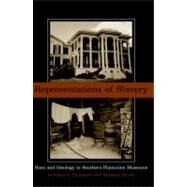Representations of Slavery Race and Ideology in Southern Plantation Museums
, by Eichstedt, Jennifer L.; Small, Stephen- ISBN: 9781588340962 | 1588340961
- Cover: Paperback
- Copyright: 9/17/2002
How is slavery presented at the public and private plantation museums in the American South, almost 150 years after the Civil War? Jennifer L. Eichstedt and Stephen Small investigated this question in Virginia, Georgia, and Louisiana by touring more than one hundred plantation museums; twenty locations organized and run by African Americans; and eighty general history sites. Their findings indicate that the experience and legacy of slavery is still inadequately presented within the larger discourse surrounding race, racism, and national identity. The vast majority of slavery sites construct narratives of history that valorize a white elite of the pre-emancipation South and trivialize the experience of slavery for both enslaved people and their enslavers. Through systematic analysis of richly textured data, the authors ofRepresentations of Slaveryhave developed a typology of primary representational/discursive strategies used to discuss slavery and the enslaved. They clearly demonstrate how these strategies are linked to representations and practices in the larger social and political arenas. Eichstedt and Small found counter narratives at sites organized and staffed by African Americans, and a small number of white-organized sites have made efforts to incorporate African American experiences of slavery as part of their presentations. But the predominant framework of the "white-centric exhibition narrative" persists, and the authors draw from contemporary literature on racialization, museums, cultural studies, and collective memory to make a case for public debate and intervention.






